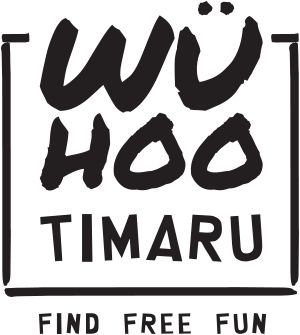By Roselyn Fauth

Obituary: Joyce Guthrie- Adventurous spirit put great energy into looking after others (c 2001). Aoraki Heritage Collection, accessed 05/08/2025, https://aorakiheritage.recollect.co.nz/nodes/view/7563
I was lucky enough to be shown around the Timaru Girls’ High School archives with volunteer archivist Pamela. She pulled out all kinds of gems, including a photocopy of a newspaper clipping... and obituary of an ‘old girl’ of the school: Mary Joyce Guthrie (née Macdonald). I snapped a photo, and later that evening, with a glass of wine in hand, I read it properly. What an interesting article about her life! One article turned into a search to learn more and piece together the world and time she lived in. Here’s what I learned about this remarkable Timaru woman...
Joyce was born Mary Joyce Macdonald in Timaru on 16 April 1910, the daughter of Peter Peterson Macdonald and Mary Elizabeth (née Osborn). She went to Waimataitai School before attending Timaru Girls’ High School, walking the same paths so many of us know well.
In 1938, she qualified as a registered nurse at Timaru Hospital. She worked at Waimate, Ranfurly, and Roxburgh hospitals, and even travelled to South Africa in 1938–39. Then, as the world descended into war, Joyce stepped forward again. On 30 January 1941, she enlisted in the New Zealand Army Nursing Service (NZANS).
Joyce spent three years nursing in the Second New Zealand General Hospital in Cairo, Egypt, and later in Italy, rising to the rank of Lieutenant.
According to the newspapers obituary, In her 1981 memoir, Away from Home, she described moments that cut to the heart of her calling: “There is no satisfaction greater in the nursing world than to work on a man whose death was unquestionable a week before, to put him clean and comfortable between cool sheets, and then hear him say, ‘God, is this really me — this is heaven.’”
I can only imagine what it took to keep steady hands amidst the chaos of wartime hospitals.
One story in her obituary and memoir made me smile. On New Year’s Day, 1943, while stationed in Cairo, Joyce learned that one of her nurse friends was ill in Khartoum. Determined to see her, she went AWOL... slipping away without permission, boarding a train across the desert, and making the journey.
It was reckless by military standards, but as Joyce later admitted, her penalty was light. And it was on that escapade she crossed paths with a soldier named Bruce Guthrie. They met just once more during the war, but they wrote to each other often. When the war ended, Bruce arrived home in April 1945 to find a message: Joyce was passing through Invercargill.
Bruce later recalled: “I met her at the train. We rushed into each other’s arms.” Eight months later, in December 1945, they married.
The Squire’s Wife of Andersons Bay
Joyce settled in Dunedin’s Andersons Bay, where Bruce became managing director of Guthrie Bowron (1952–1975). Their home earned a reputation for hospitality. Friends remembered Christmas Day gatherings where neighbours who might otherwise be alone were welcomed in, the table laden with food.
She volunteered tirelessly with the Red Cross and Meals on Wheels, was active in the Andersons Bay Presbyterian parish, and even wrote articles for The Outlook. In every stage of her life — whether in Timaru, Cairo, or Dunedin — she combined competence with compassion.
In 1983, Bruce and Joyce retired to Wanaka. Even as age and Alzheimer’s disease touched her later years, she was cared for at home by Bruce, surrounded by family. Joyce died in Wanaka on 16 February 2001, aged 90, survived by Bruce, their daughter Sue, and sons David, John, and Michael.
Why I Think Her Story Matters
Reading about Joyce left me wondering: what would it have been like to leave Timaru Hospital, swap your starched apron for an army uniform, and sail into a war zone? Her story is full of grit, compassion, and moments of sheer boldness — the kind of daring that makes history human. It’s easy to read “NZ Army Nursing Service” and imagine it as an abstract term. But it was people like Joyce, our neighbours’ daughters, who went.
It makes me reflect:
- Would I have had her courage?
- What stories of women like her are tucked away in our own family archives, waiting to be told?
- How many others from Timaru Girls’ High walked similar paths and came home changed forever?
As I walked out of the school archives with Pamela, I couldn’t stop thinking how many extraordinary lives have made a ripple. Next time you pass Waimataitai School, Timaru Hospital, or even an old family photo, pause for a moment. Who might be hidden there, waiting for their story to be retold?
Sources
Obituary by Staff Writer: “Joyce Guthrie – Nurse and Hostess”, https://aorakiheritage.recollect.co.nz/nodes/view/7563?type=all
South Canterbury Museum, Aoraki Heritage Collection: Profile of Mary Joyce Macdonald (ID: 6868).
Away from Home (1981) by Mary Joyce Guthrie (née Macdonald).
Christchurch City Libraries: NZ Army Nursing Service and WWII medical service personnel guides.
Find A Grave Memorial: Mary Joyce Guthrie (1910–2001).
